Introduction & Analysis
This collection of open-source English-language news articles published over the past week highlights significant events and issues concerning Myanmar. They present a snapshot of the country's safety and security landscape.
Intense conflict continues across Myanmar between the junta, ethnic armed organizations (EAOs), and resistance forces, involving ground battles, territorial disputes between groups like the SSPP and MNDAA, and devastating junta airstrikes targeting civilians, schools, and monasteries. This violence and natural disasters like the recent earthquake have caused widespread displacement and a refugee exodus into Thailand, straining aid and resulting in humanitarian crises including health outbreaks and limited medical access, partly due to factors like US aid reductions. Myanmar faces significant economic and social issues, including low garment worker wages, increased illegal logging, and rising drug use and gambling, alongside the complex impact of China's strategic influence which involves mediating conflicts to secure trade routes and protect its economic interests. Further concerns include accusations against ASEAN billionaires for funding the junta, arbitrary enforcement of local laws, and a Level 4: Do Not Travel advisory from the U.S. State Department due to risks like armed conflict and wrongful detentions.
Conflict
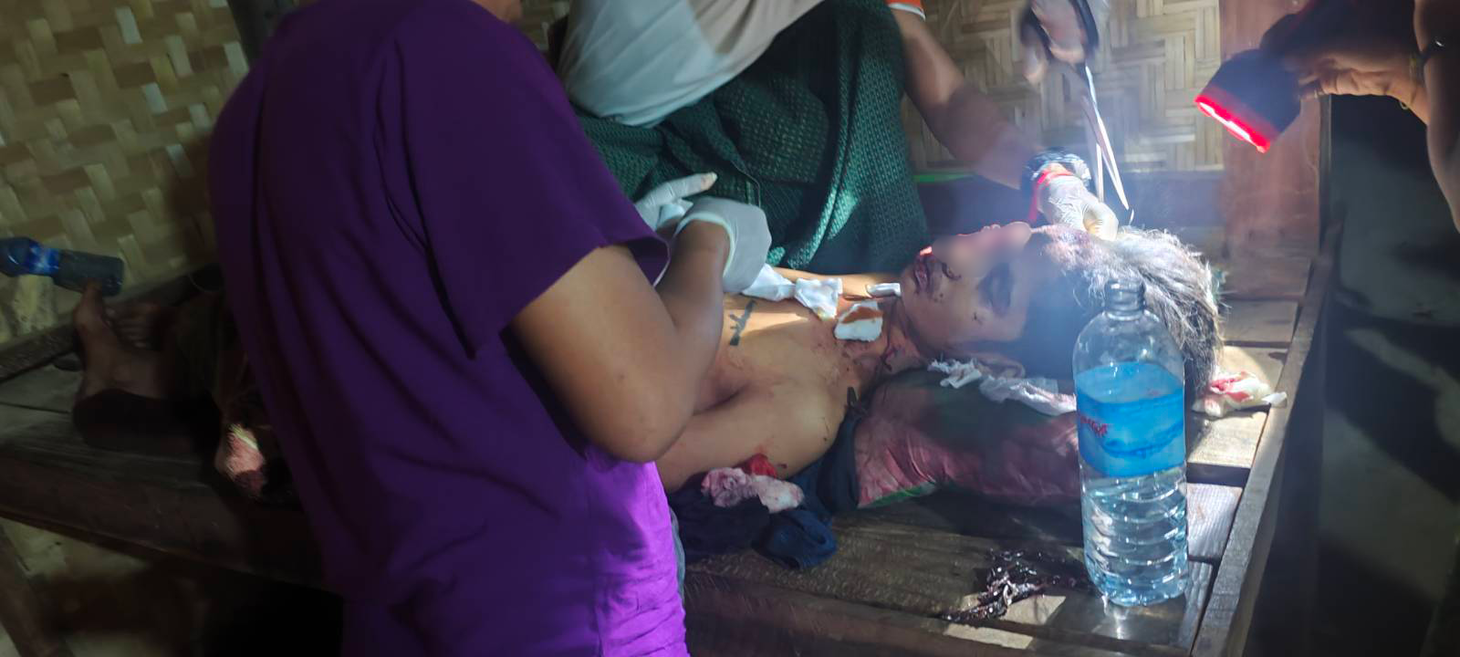
Seven resistance members killed by Myanmar junta airstrike in Magway Region
On May 5, 2025, the Myanmar air force bombed a village school in Saung Kyan Kone village, Pakokku Township, Magway Region. At least seven members of the People’s Defence Forces (PDF) and other resistance groups were killed when the airstrike hit the school where they were sheltering. Four other fighters were injured, with one later dying of his injuries, and the victims were young members aged 26 to 30, including those under the command of the National Unity Government (NUG).
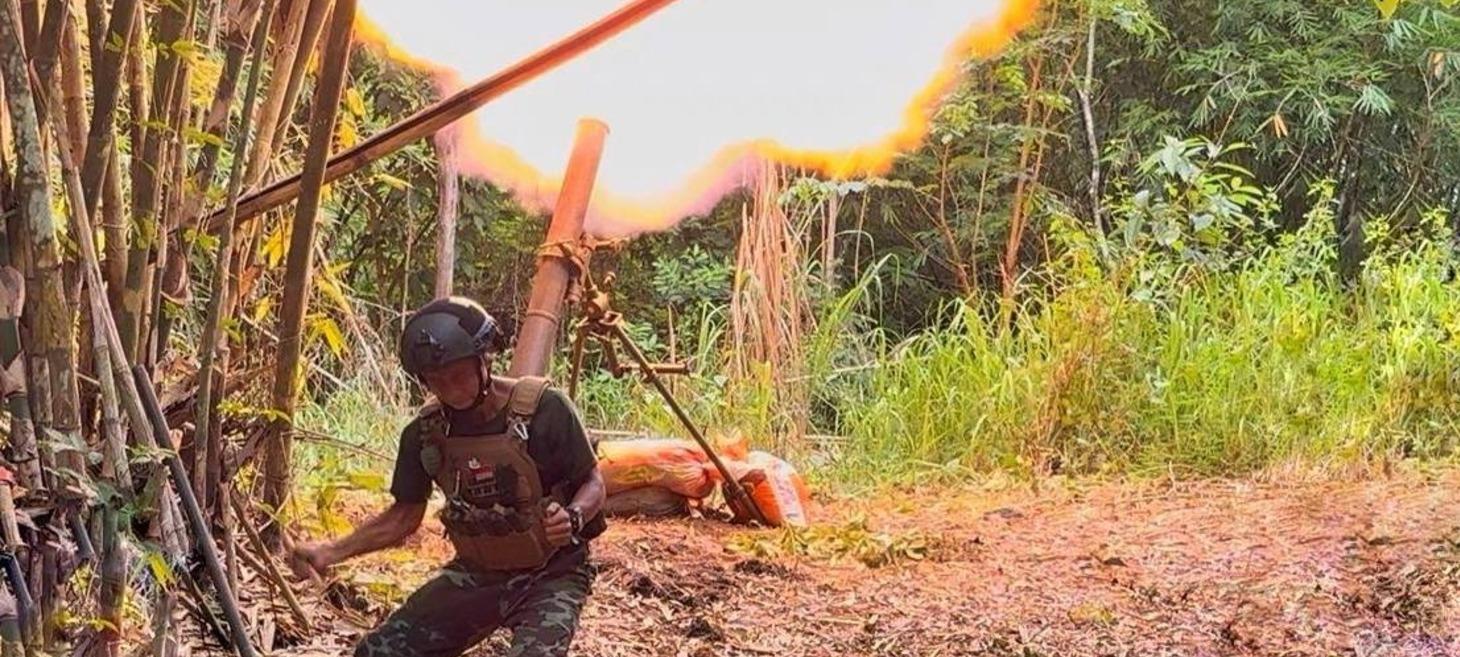
KNU-led forces capture key junta base on Thai-Myanmar border
Forces led by the Karen National Union/Karen National Liberation Army (KNU/KNLA), along with Tanintharyi Region PDO forces and People’s Defence Force battalions, captured a key Myanmar army base near the Thai-Myanmar border. The base, located near Htee Khee in Tanintharyi Region’s Dawei Township, was seized early Friday following 10 days of intensive fighting. This fall is significant as the base is situated along a major trade route.
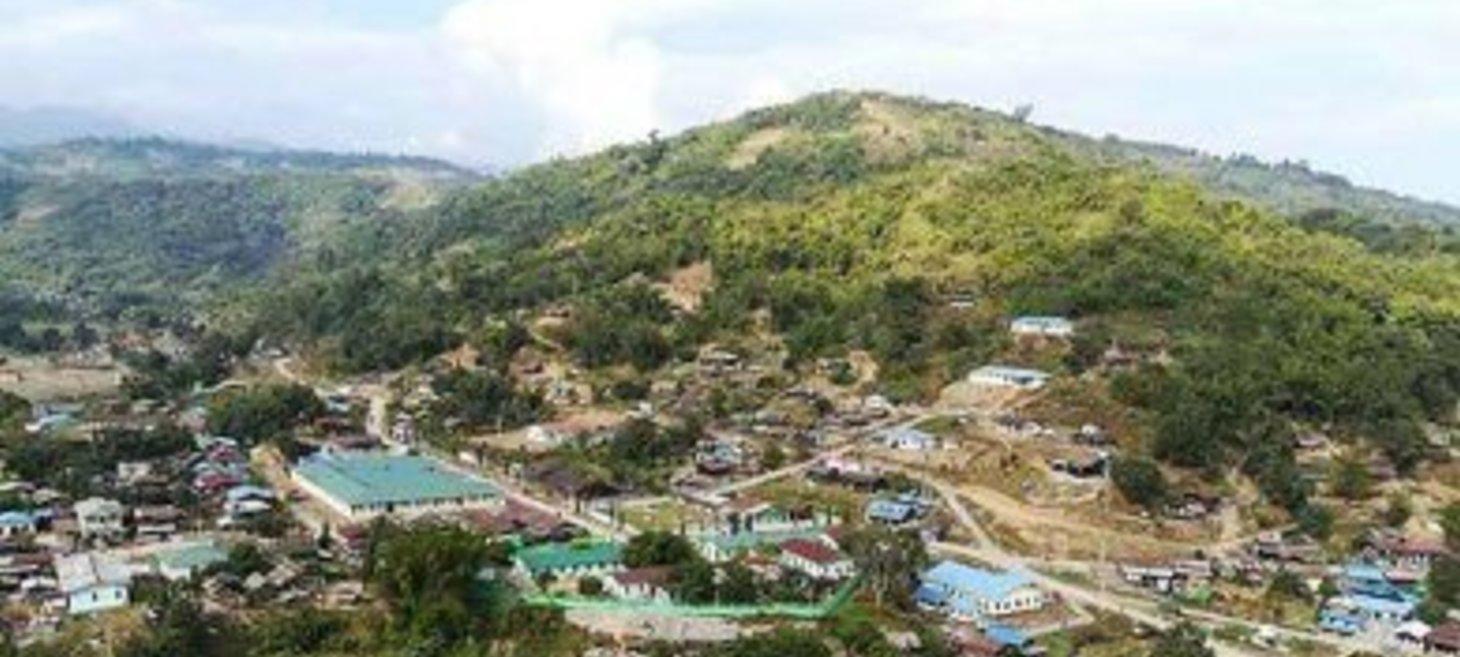
Junta Sends Reinforcements to Nanyun Town, Sagaing Region
Since late April 2025, the junta has been sending reinforcements, including airlifting about 100 soldiers by helicopter, to Infantry Battalion (IB) 126 stationed at the Nanyun Garrison Base in Sagaing Region’s Nanyun Town. Nanyun Town is located in the northernmost township of Sagaing Region, sharing a border with Kachin State and situated on the strategically important Ledo Road that connects to Danai Town. While the exact reasons are unclear, speculation suggests the reinforcements are due to Nanyun's location as a potential route into Kachin State or in response to intense recent fighting near Jahtu Zup Village on the Ledo Road, where the military situation remains tense.
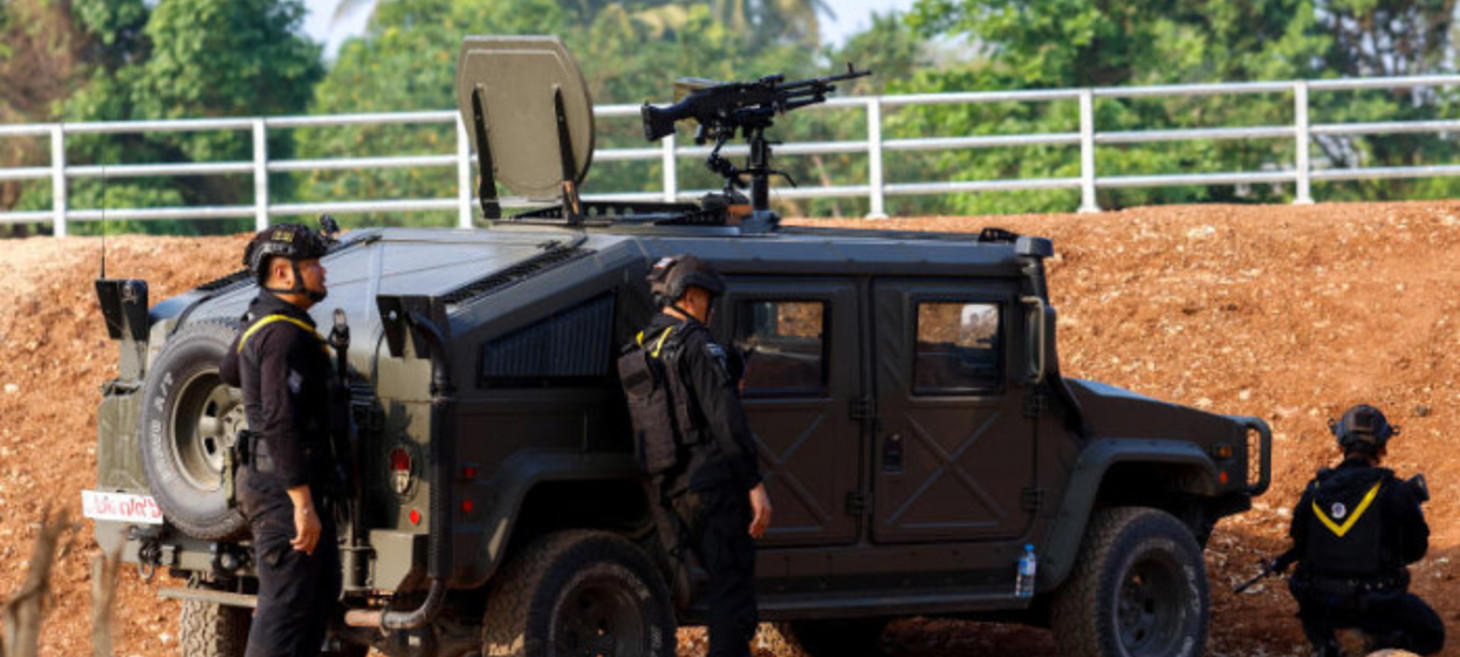
Karen seizure of Myanmar base prompts refugee exodus
Following the seizure of a Myanmar military base by Karen forces near the Thai border, fighting intensified, leading to an exodus. Over 300 Myanmar nationals crossed the border into Tak province, prompting Thai authorities to increase security and provide aid to refugees amidst ongoing conflict. The situation involves Myanmar military actions, including requesting air support and dropping bombs, reported continued attacks despite a ceasefire extension, and the sighting of Myanmar fighter jets near the border.
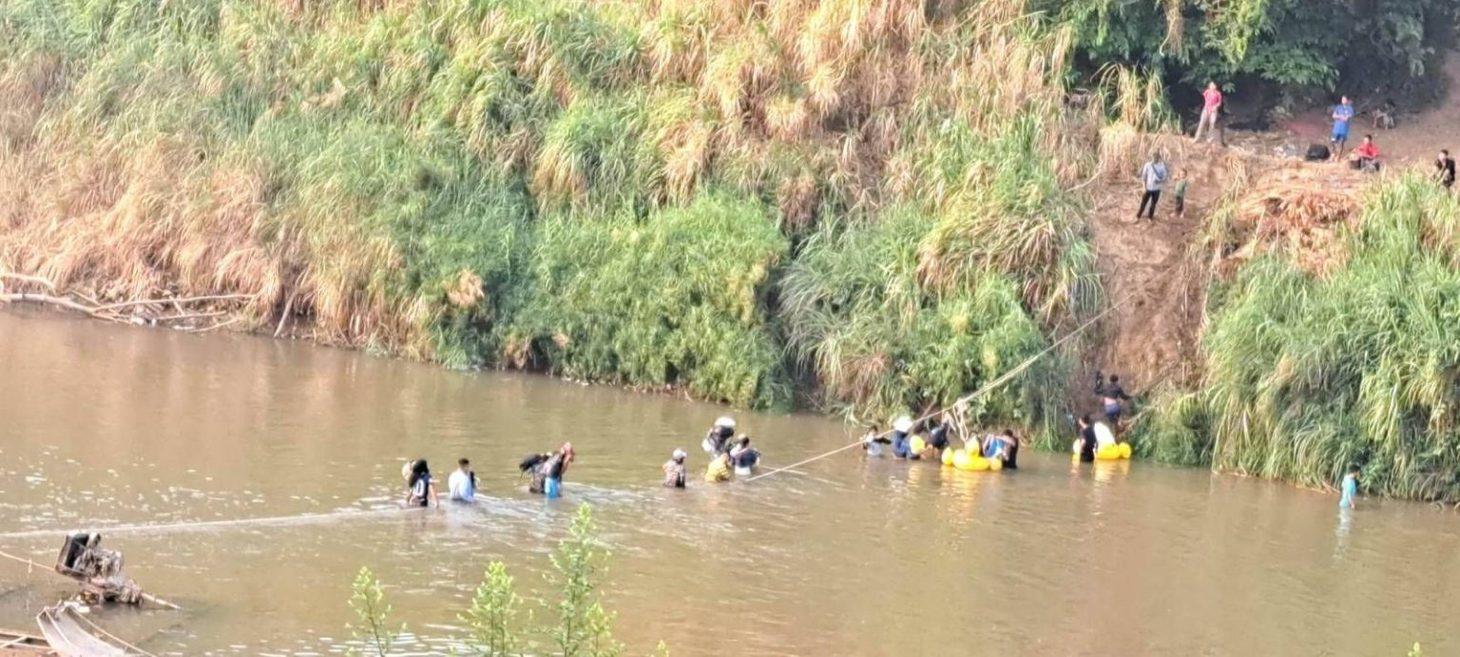
Hundreds flee across Thai border after attack on Myanmar military
Following an attack by the Karen National Liberation Army and its allied Karen National Defence Organisation on a Myanmar military base in Karen State near the Thai border, hundreds of Myanmar nationals fled into Thailand seeking refuge. The attack involved a close-range encirclement of the base and the continuous use of armed drones to drop explosives. By Thursday, 327 Myanmar nationals had crossed into Thailand and were sheltering in two temporary sites, receiving security from Thai military and police.
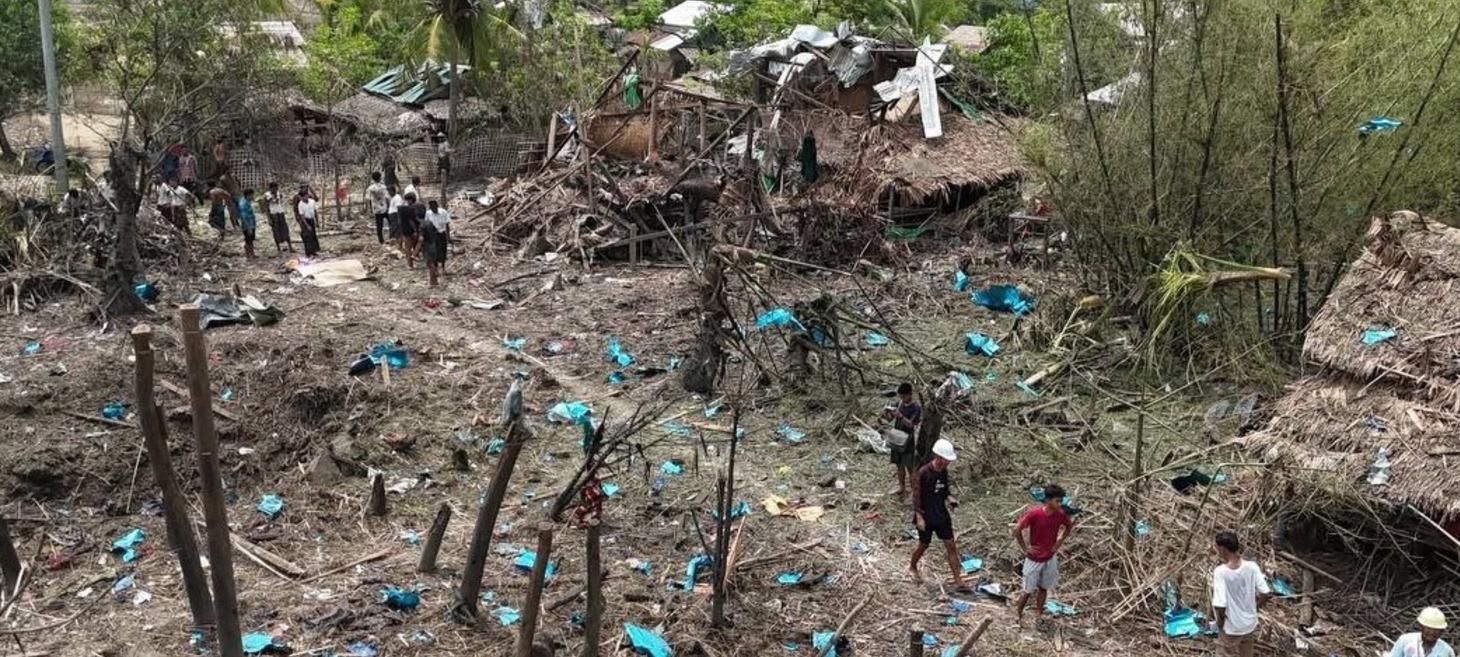
Myanmar military bombs areas under TNLA, AA control, killing 11
The Myanmar military launched airstrikes on areas controlled by the Ta’ang National Liberation Army (TNLA) and the Arakan Army (AA), groups within the anti-junta Brotherhood Alliance. These attacks, occurring on Monday and Tuesday, reportedly resulted in the deaths of 11 civilians, including seven women and a two-year-old child, in Rakhine State's Rathedaung Township. The bombings in Rathedaung Township killed at least 10 civilians and injured 20, despite the junta having previously announced a ceasefire for earthquake relief efforts.
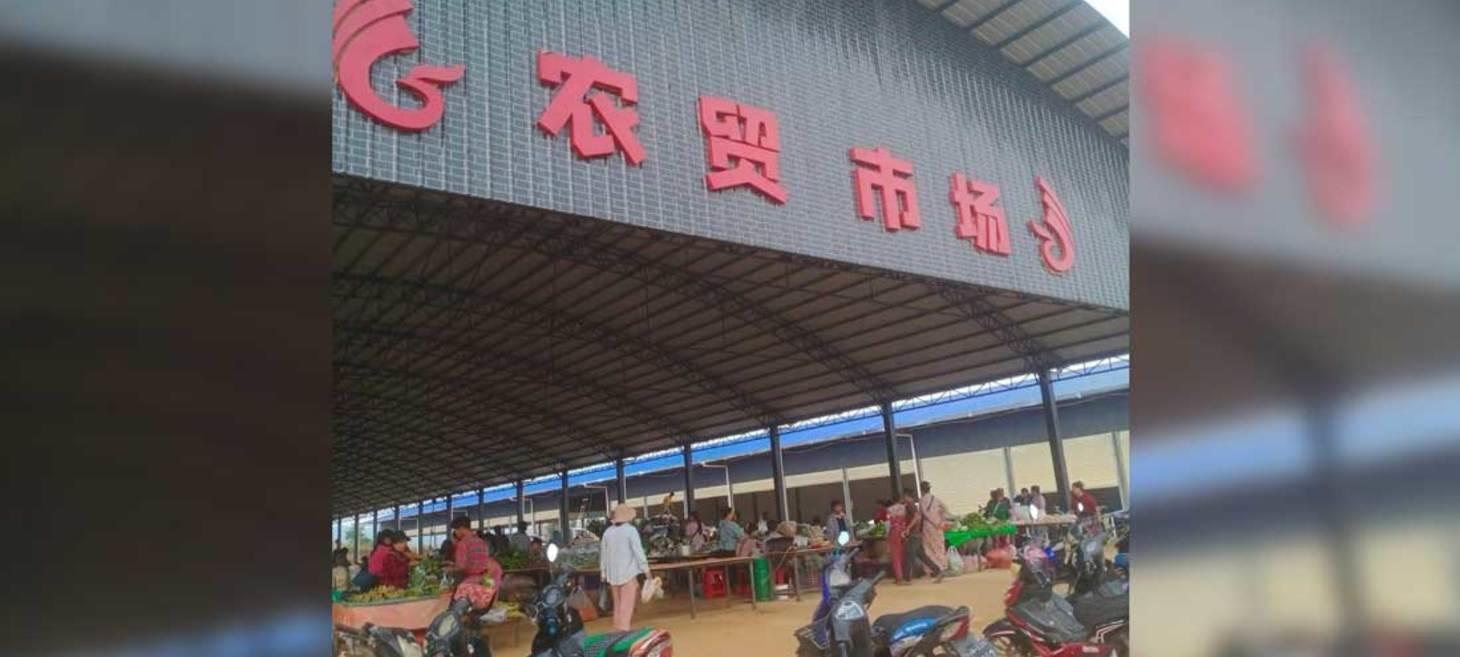
From Conflict to Commerce: Hsenwi Locals Struggle as Chinese Investments Rise
Following the MNDAA's capture of Hsenwi during its "1027 Operation," a growing number of Chinese nationals are settling in the town, renting homes and shops left vacant by displaced locals. This influx has led to Chinese businesses rapidly moving in and securing properties at rental prices significantly higher than what many locals can afford, often conducting transactions in yuan and impacting local livelihoods. As the town's demographic and economic landscape shifts, tensions have reportedly flared between locals and the MNDAA administration, with residents fearing the long-term effects on their community.
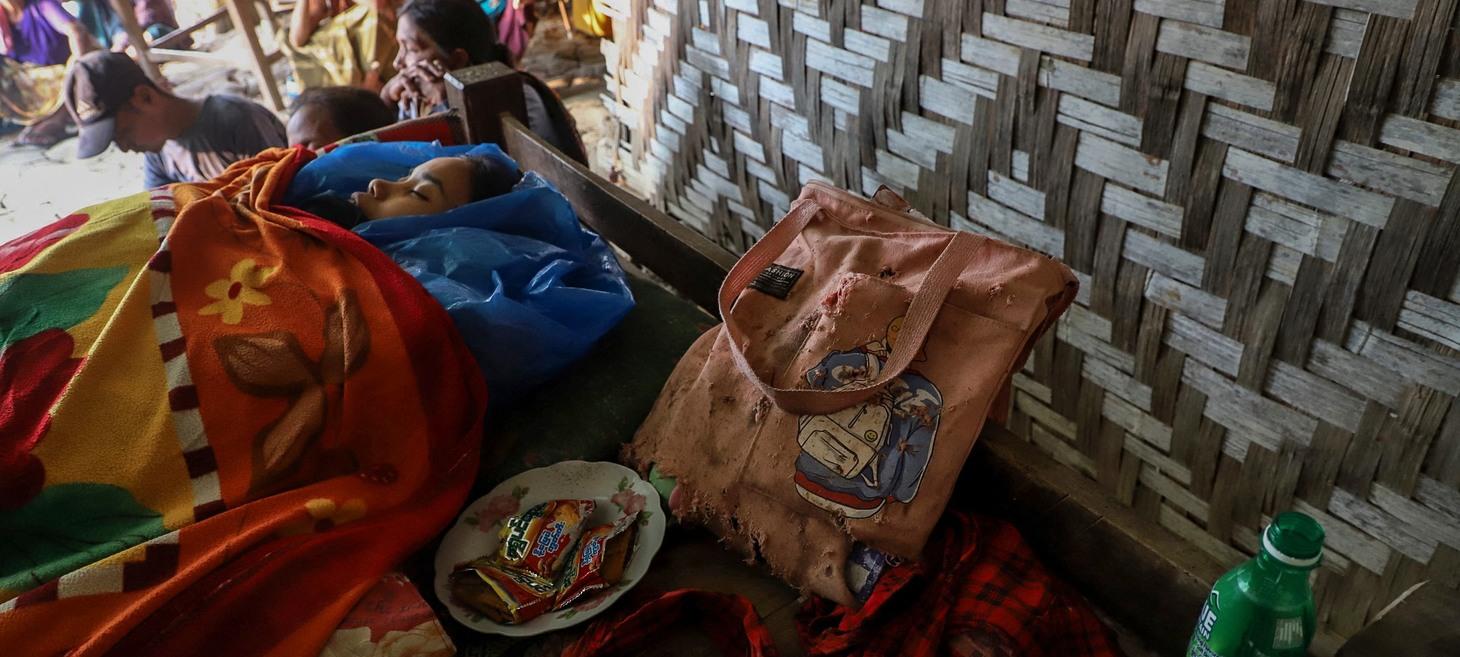
Schools closed in resistance stronghold after deadly assault by Myanmar junta
Following a deadly assault by the Myanmar junta on a school in Oe Htein Twin village in Sagaing’s Depayin Township, a resistance stronghold, at least 20 children and two teachers were killed. As a direct result of this attack, all schools in resistance-held areas of Depayin Township have been closed. This mass killing by the regime has led many parents to become reluctant to use schools located in resistance-held areas.
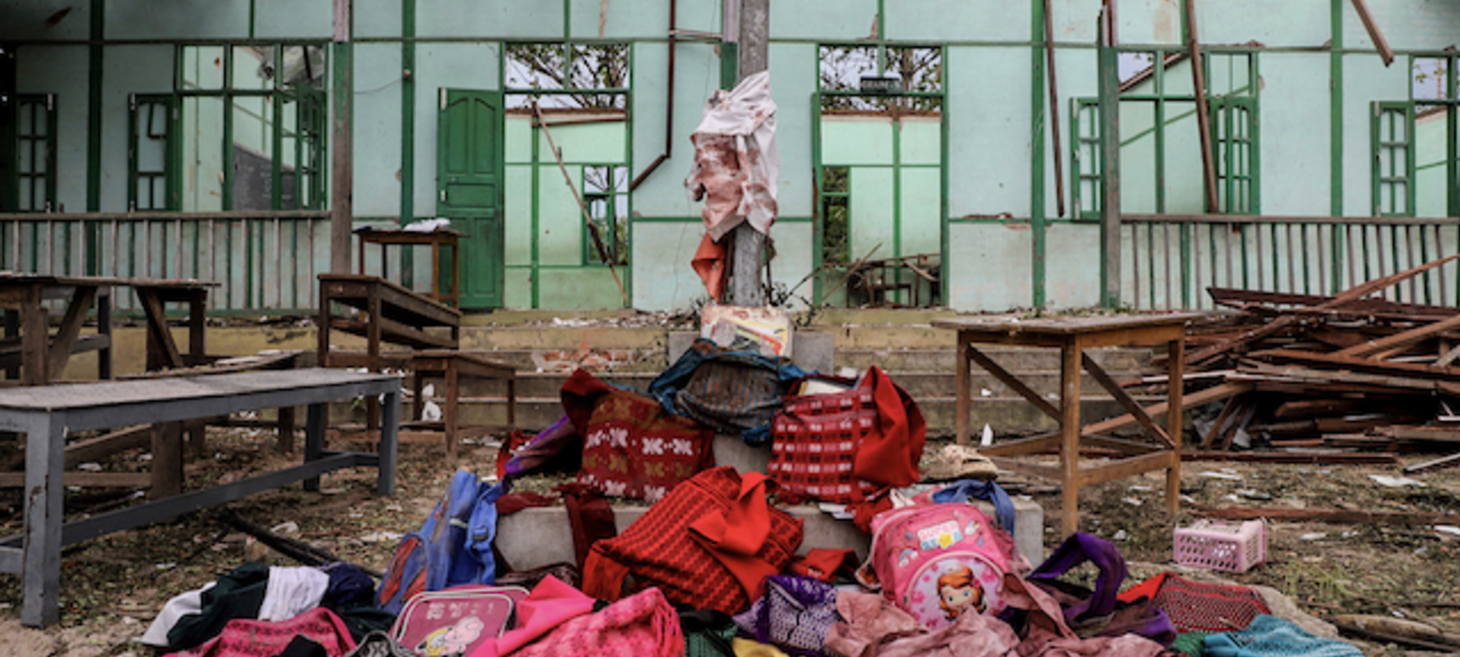
Myanmar junta airstrike kills 22 at school: witnesses
An airstrike attributed to the Myanmar junta reportedly hit a school in O Htein Twin village, Tabayin Township, Sagaing Region on May 12, 2025, despite a supposed humanitarian ceasefire called after a major earthquake. The attack killed 22 people in total, including 20 children and two teachers, according to witnesses and an education official from the area. The junta's information team denied the reports, calling them "fabricated news" and stating there was no airstrike on non-military targets.
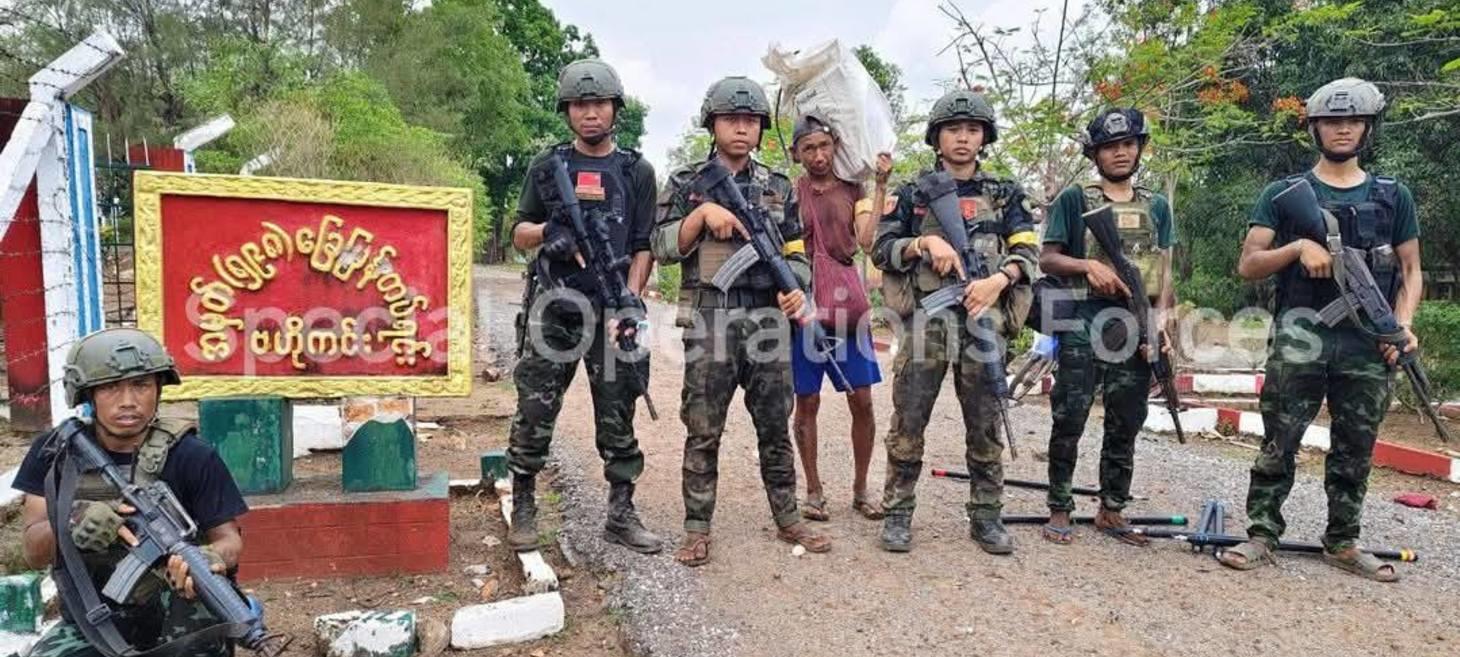
Myanmar military retakes battalion base from resistance, Karen fighters in Bago Region
A large force of Myanmar army ground troops recaptured the Light Infantry Battalion (LIB) 598 base in Bago Region’s Shwegyin Township on Sunday. This action came three days after anti-junta forces, comprising the Karen National Union (KNU) and allied People’s Defence Forces (PDF), had seized the base the previous Thursday following a prolonged blockade and intense fighting. Although the military counteroffensive appears to have retaken the base, resistance fighters claimed they had withdrawn with remaining equipment but were still deployed in the surrounding area.
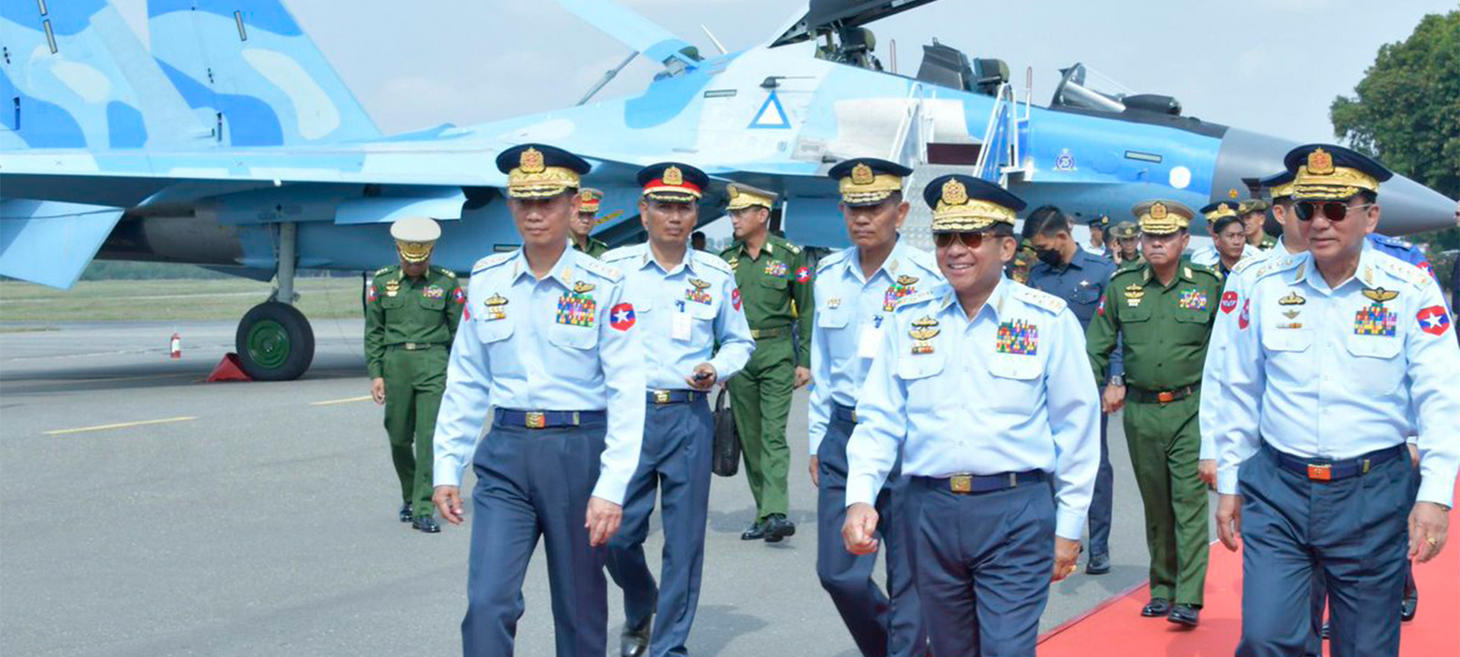
How Myanmar Junta Uses Air Force to Fight Its Corner
Facing ground defeats, the Myanmar junta heavily relies on its air force for aerial bombings, often targeting civilians, with its operations enabled by international arms suppliers and domestic bomb production. The process for requesting air support initially involved a slow, centralized bureaucracy under Min Aung Hlaing but has since become decentralized, with authority shifting to regional commanders and lower-ranking officers for tactical strikes. Strategic air campaigns targeting key locations, however, require authorization from the high-level Joint Operations Command (JOC), sometimes led by Soe Win.
Corruption
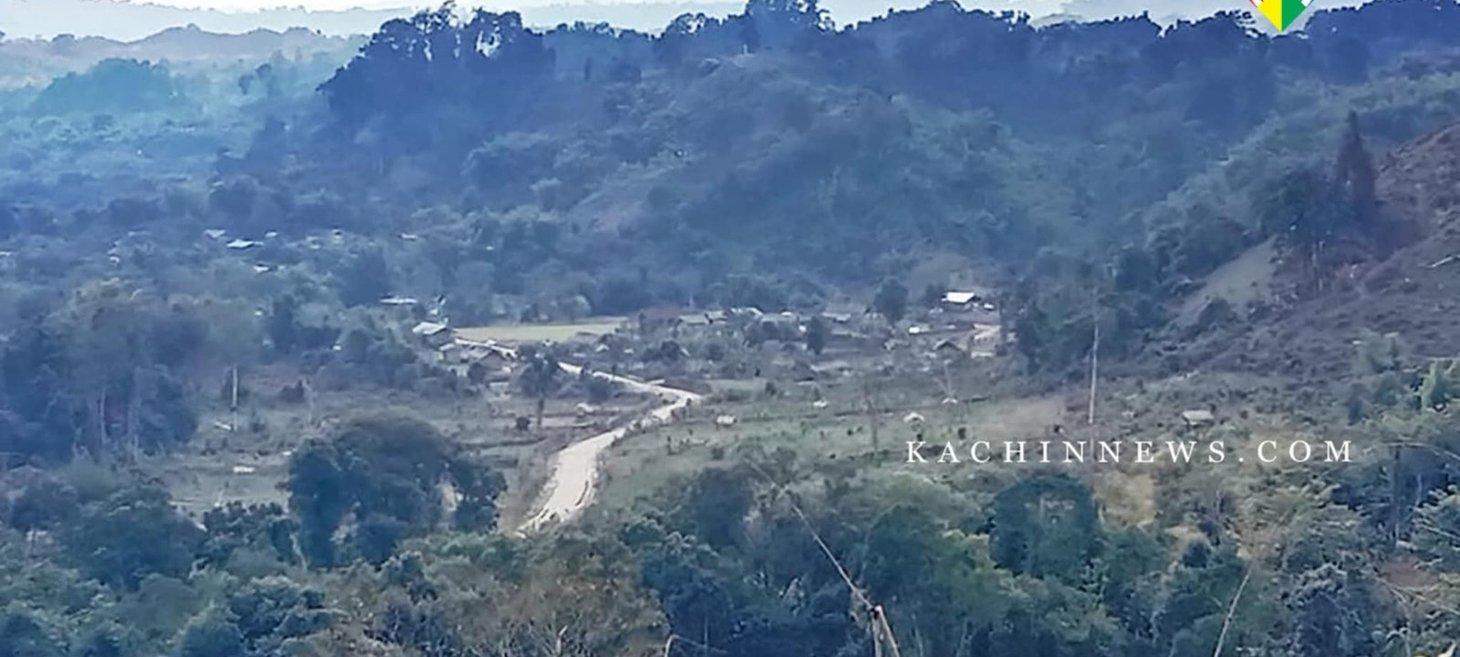
Travellers Without ID Fined at Putao Township Checkpoint
A junta checkpoint at the entrance of Longshayang Village in Putao Township, located between Sumprabum and Putao towns, is strictly checking travellers' national identification cards (NICs). Those unable to present their NICs are facing hefty fines, typically starting at 100,000 MMK, leading some travellers to describe the soldiers as looking for opportunities to extort money. This checkpoint, which has also historically imposed high tolls on trucks, causes significant delays due to strict inspections and restricts movement, particularly outside of its operating hours between 6:00 am and 6:00 pm.
Crime & Narcotics
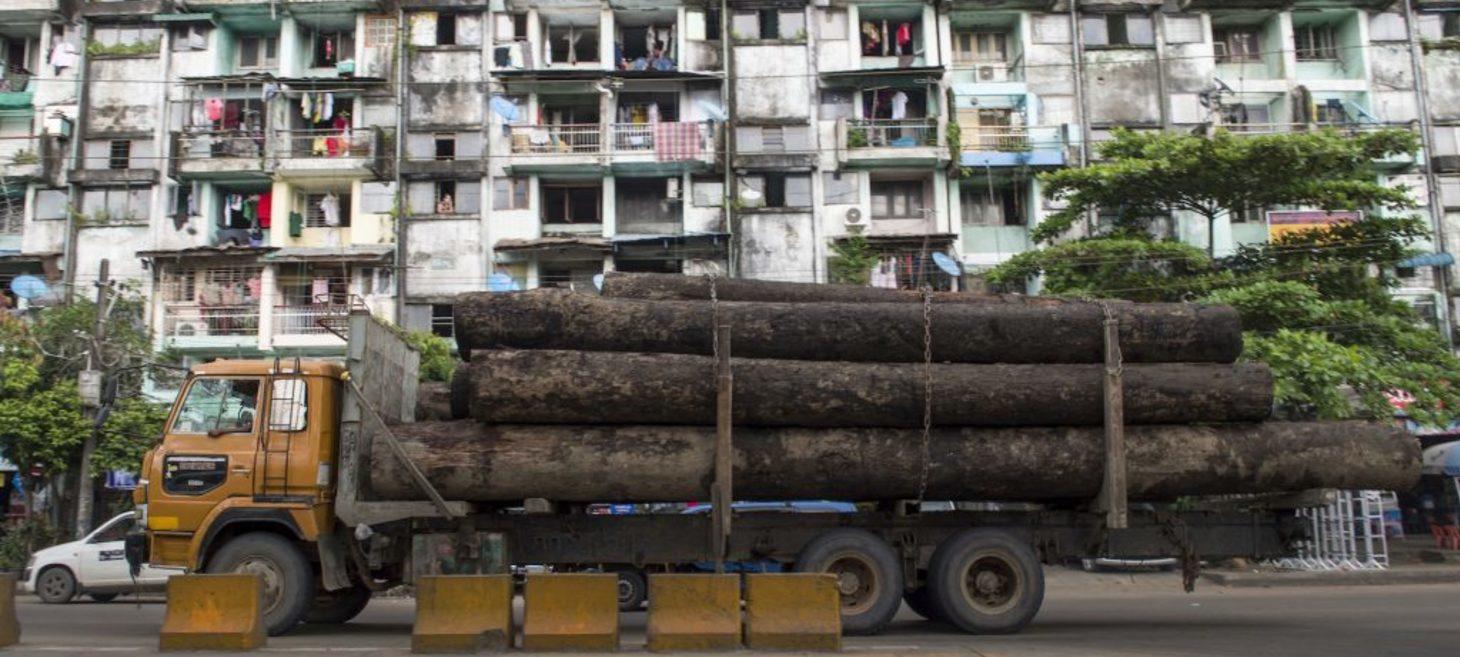
Logged out: Conflict drives deforestation in Bago mountains
Illegal logging, particularly of teak, in Myanmar's Bago Yoma mountains has intensified dramatically since the 2021 military coup, making the situation "the worst it's ever been". This increase is driven by the conflict and instability in the region, with both regime troops and resistance forces profiting from timber through direct logging, operating makeshift sawmills, or charging gate fees for transportation to places like Yangon and Mawlamyine. Despite previous logging moratoriums and claims of success in seizing timber, the lack of effective law enforcement and the financial needs of armed groups mean the problem remains largely out of control.
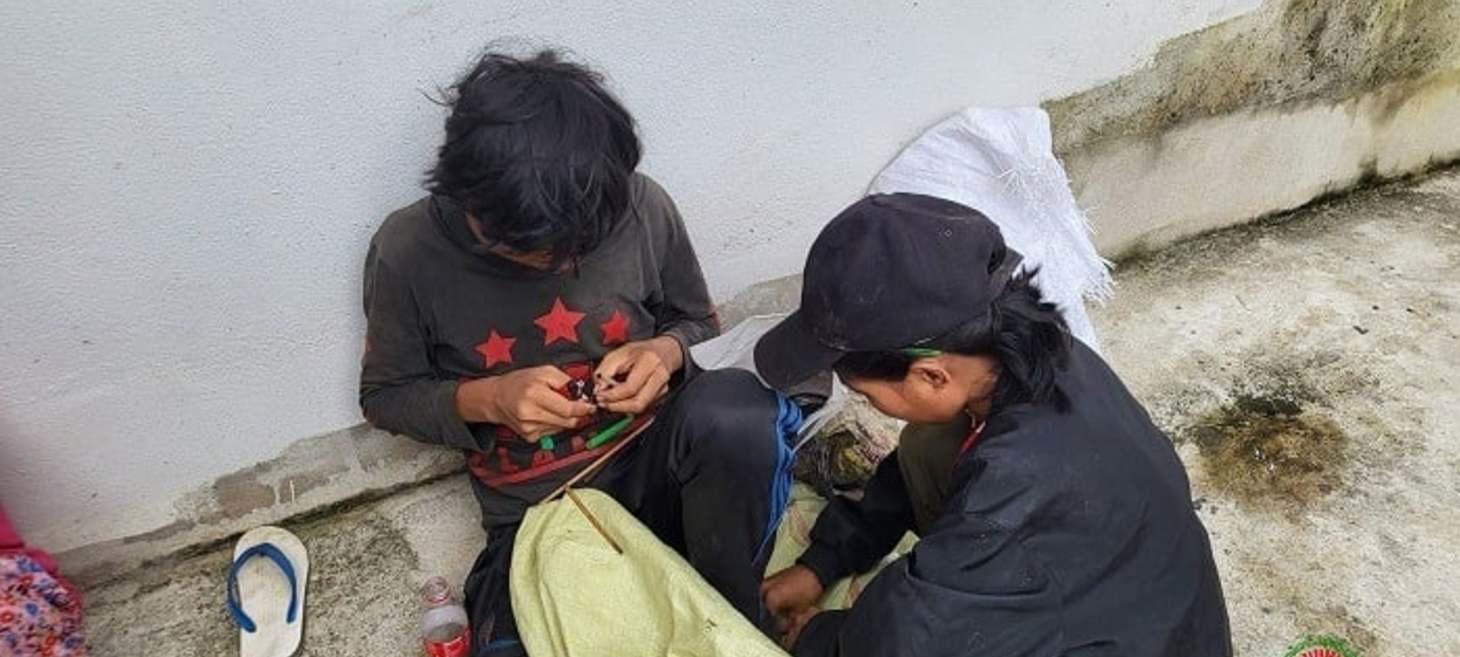
Meth and Misery: The Growing Drug Epidemic Hollowing Out Shan State
Methamphetamine, known locally as WY or Yaba, has become widespread in Shan State, used by both adults and teenagers, often as a dangerous crutch to endure physically demanding labor amidst economic collapse and a lack of opportunity. This growing drug dependence can escalate into violence and fear within families and communities, reflecting a systemic crisis driven by neglect, armed conflict, and criminal profiteering, where drugs are easily obtained and dealers operate with impunity. Shan State is a major area for synthetic drug production, often supported by armed groups and crime networks, leading to concerns that the influx of drugs is intentionally used to control the population and prevent resistance.
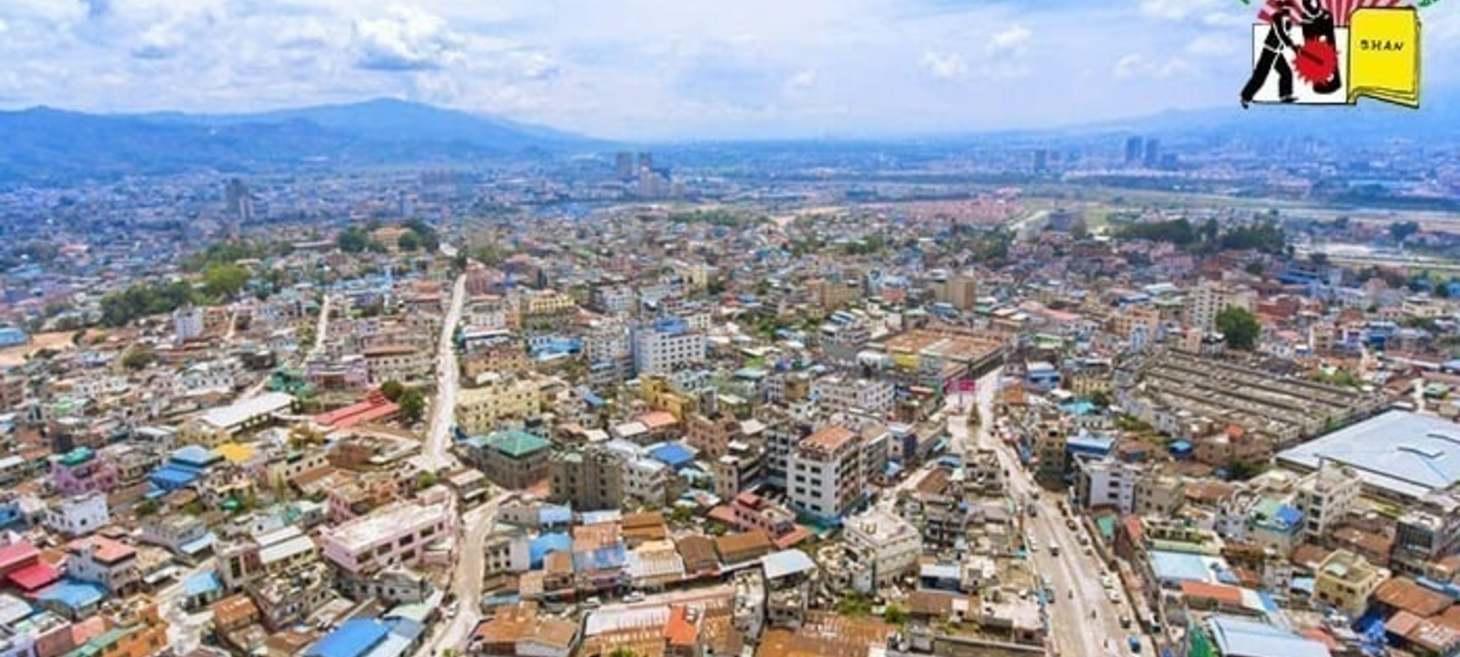
Gambling and Drug Use Rise in Muse Town
Muse Town in northern Shan State is experiencing a significant rise in illegal gambling establishments, drug addiction, and crime. This surge is occurring alongside a reduction in law enforcement and amidst mixed control of the township by the junta and ethnic armed organizations, specifically the Ta’ang National Liberation Army (TNLA) and the Myanmar National Democratic Alliance Army (MNDAA), with sporadic and ongoing fighting since May 2024. Areas like the downtown near the former football field and the Sin Phyu Gate, a busy China–Myanmar border trading point, are identified as hotspots for these illegal activities, including the selling of drugs and stolen goods, with some establishments like KTV lounges and bars reportedly linked to local militia groups providing security.
Economy

Bestseller backs call for Myanmar’s garment wage hike
Danish fashion enterprise Bestseller endorses the initiative by EuroCham Myanmar Garment Advocacy Group to revisit and revise the minimum wage standards for garment workers in Myanmar. The EuroCham group emphasizes that the current inadequate minimum wage, unchanged since 2018, leads to issues like low pay, high employee turnover, and reliance on overtime, negatively impacting worker well-being and productivity. Bestseller, recognizing low wages as a systemic challenge, supports this call as an essential step to promote fair working conditions and strengthen the overall resilience of the garment sector.
Ethnic Issues
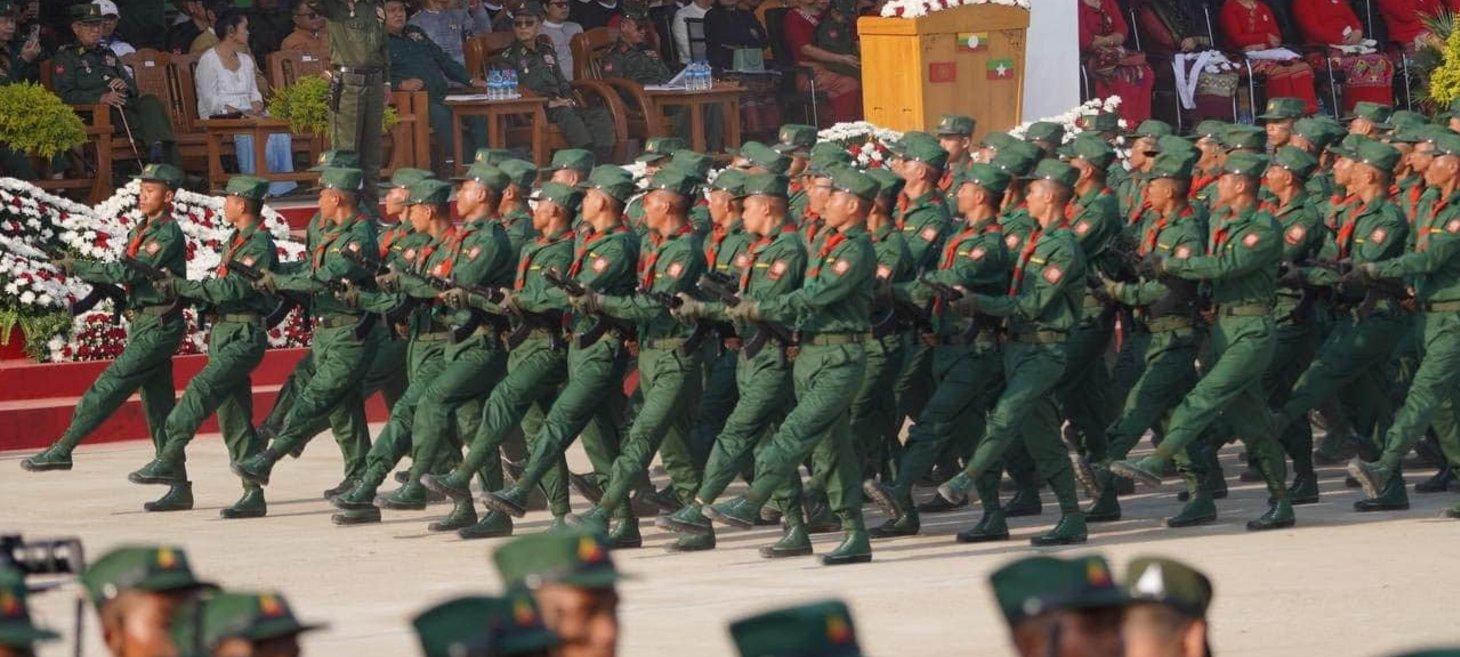
INTER-EAO CONFLICT: SSPP and MNDAA fought each other due to territorial disputes
The Shan State Progress Party (SSPP) and the Myanmar National Democratic Alliance Army (MNDAA) have been engaged in a conflict due to territorial disputes. Recent military clashes occurred on April 28-29, 2025, in Hsipaw Township, causing injuries on both sides, and attempts at central-level talks in early May 2025 failed as the MNDAA refused to withdraw from occupied areas and demanded SSPP withdrawal from certain towns. The situation remains tense, with MNDAA reinforcing forces near SSPP camps in northern Shan State, particularly along crucial trade routes, such as the Union Highway, which the MNDAA seeks to control.
Foreign Affairs
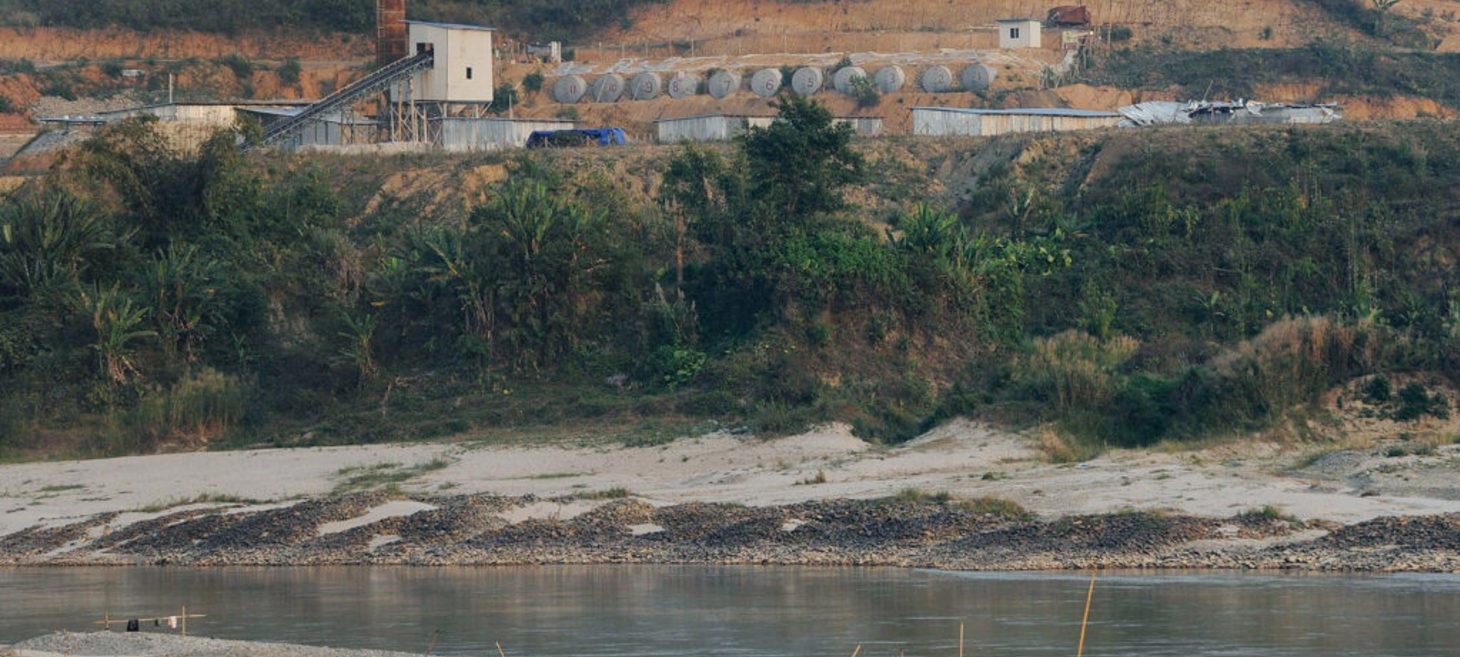
A Troubling Message from China’s Ambassador to Myanmar
The Chinese Ambassador's op-ed in Myanmar highlighted China's humanitarian assistance following an earthquake, aiming to improve its reputation as a helpful neighbor. However, the message contained a deeply troubling statement claiming the Irrawaddy River originates in the "Chinese highland," which contradicts established geographical facts and raises significant concerns about potential Chinese territorial claims over northern Myanmar. This assertion, coupled with other elements of the message, serves as a vital reminder for Myanmar to remain strategically cautious about China's intentions regarding its territorial integrity and sovereignty.
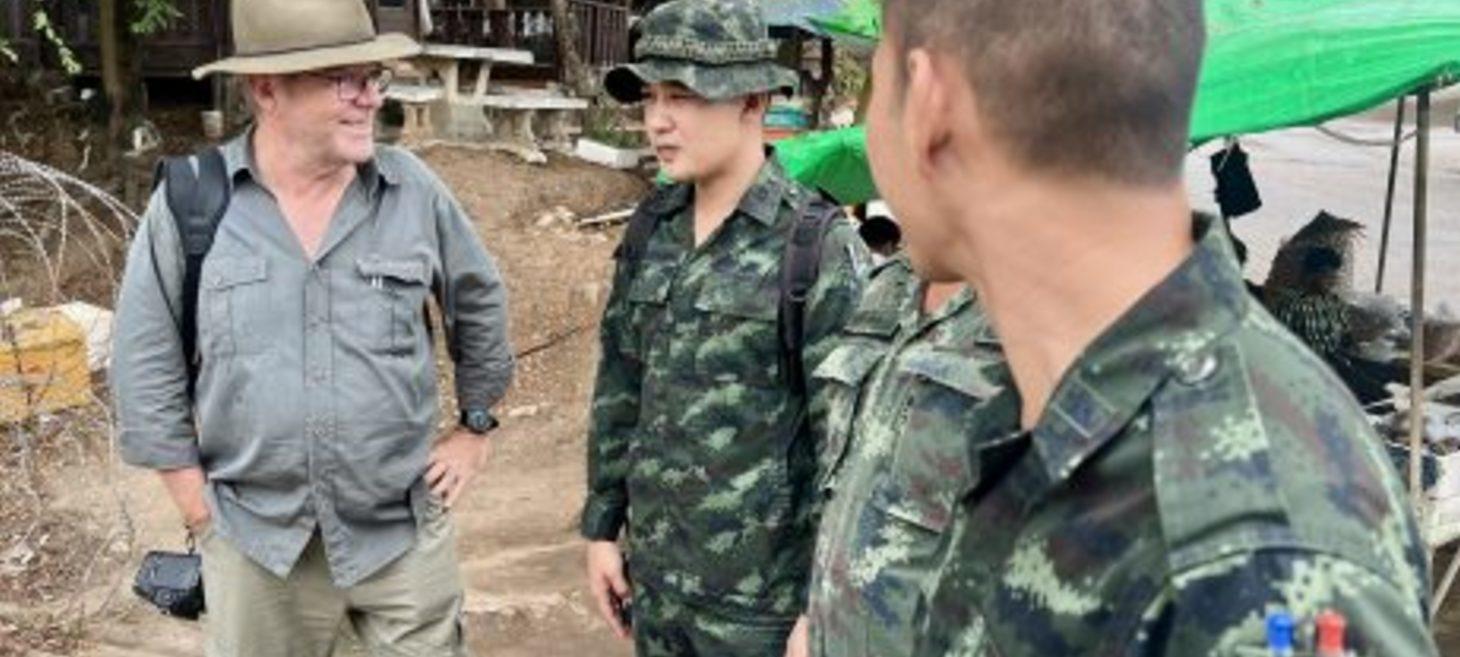
Southeast Asia, Australia, and the Trumpian Worldview
Luke Hunt's conversation with veteran correspondent Huw Watkin explored the "Trumpian Worldview" and an escalating crisis of integrity affecting Southeast Asia and Australia, alongside discussions of recent major events in the region. Watkin, who worked across Asia for three decades and is now the principal of Drakon Associates, believes this crisis has escalated with Donald Trump's return to office. This situation has provoked a backlash, as seen in recent elections in countries like Australia and Canada. It is prompting countries like Australia to seek alternative trade destinations in Southeast Asia, such as Vietnam and Thailand, to bypass the U.S. due to protectionist tariffs.
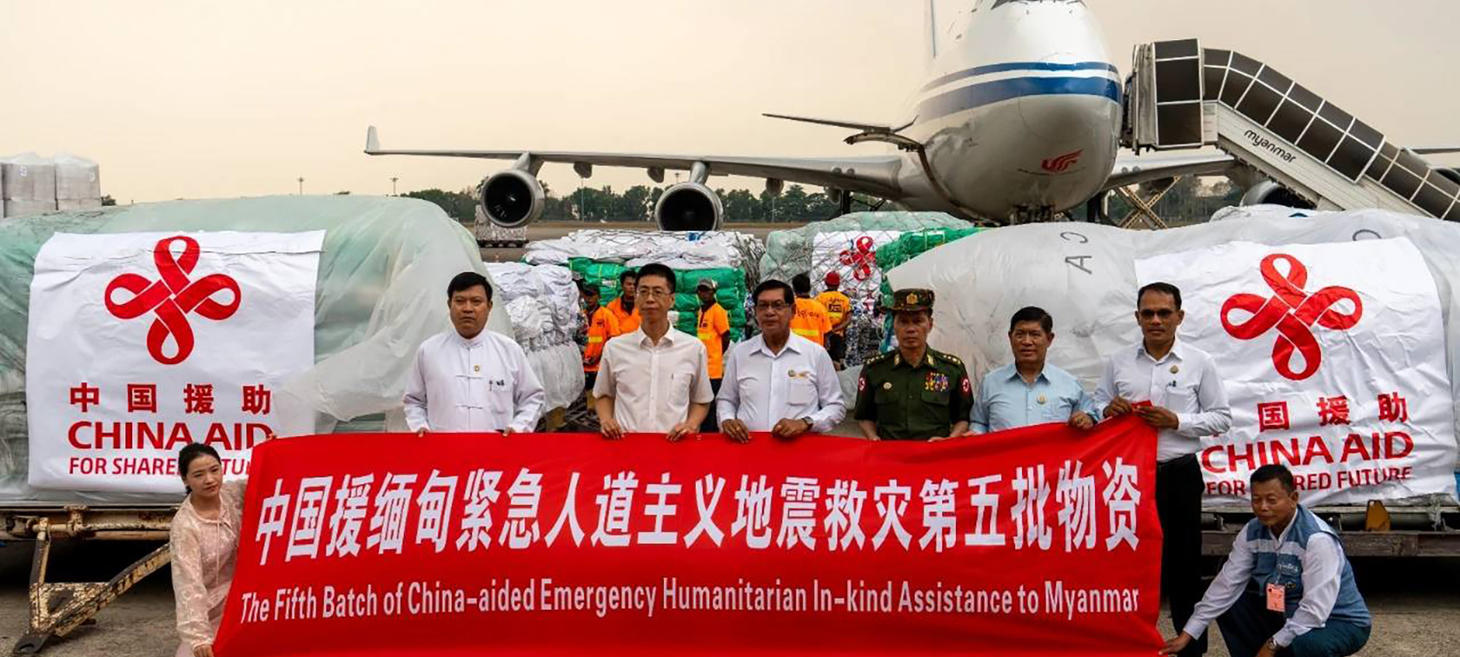
Fury Over China’s Support for Myanmar Junta Eclipses Quake Aid Gratitude
While offering earthquake aid, China's support for the military junta in Myanmar generates widespread resentment, largely eclipsing gratitude for the assistance. Beijing has actively intervened in the country's civil conflict by pressuring ethnic armed groups like the MNDAA into ceasefires and withdrawals, enabling the junta to regain control of key areas like Lashio without military engagement. These actions are fundamentally shaped by China's strategic interests, such as border trade and Belt & Road projects, which Beijing fears would be jeopardized by the regime's collapse, leading it to continue propping up the junta.
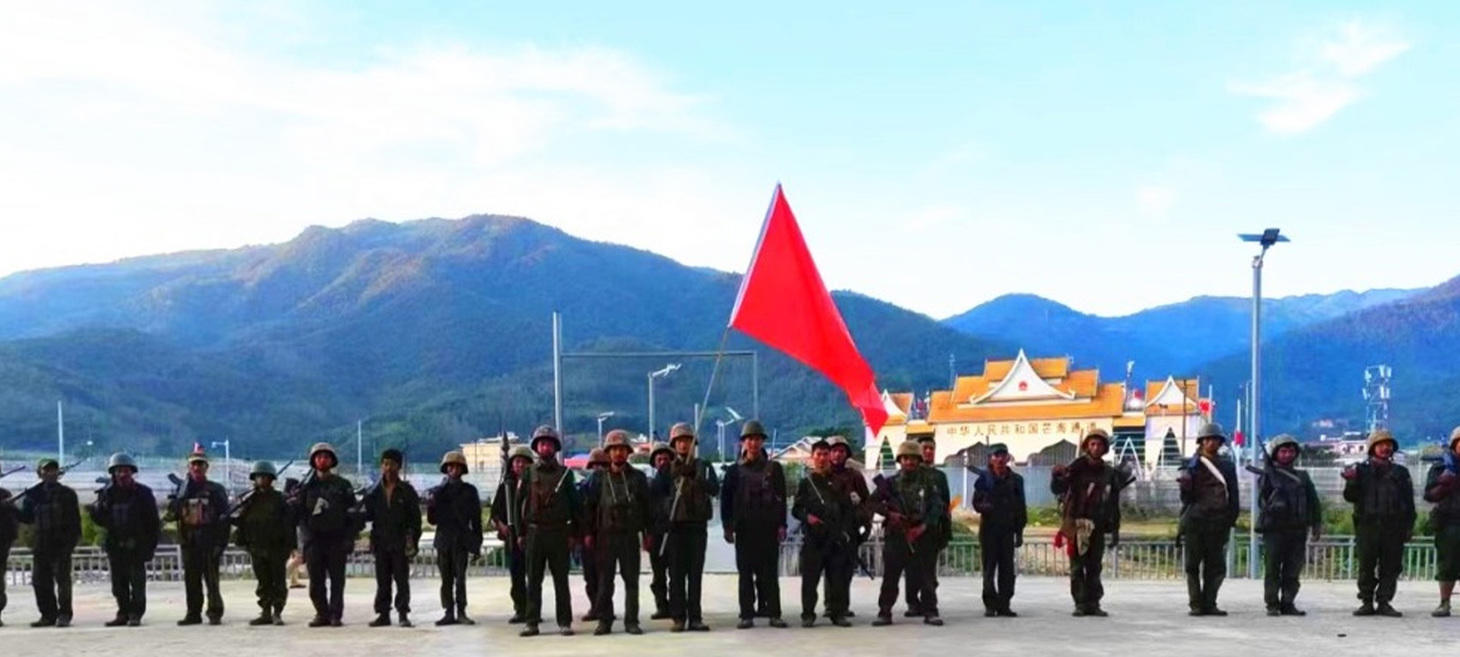
How China Manipulates Myanmar’s Ethnic Resistance
Here is a three-sentence summary based on the sources:
Since late 2022, China has been actively working to broker a ceasefire between the Myanmar regime and ethnic resistance groups along its border, primarily focused on the resumption of US$6 billion worth of annual border trade that was disrupted by recent conflicts. Beijing exerts leverage over some ethnic armed organizations (EAOs) like the KIA, TNLA, and MNDAA, who rely on it for vital supplies, employing a "divide and rule" strategy through separate negotiations to fragment alliances and pressure groups holding key trade routes. China's priority is maintaining a stable environment for its economic interests and investments, seeing the ongoing conflict merely as an obstacle. It is reportedly more focused on divvying up territory than facilitating a long-term solution.
General News

Burma (Myanmar) Travel Advisory
On May 12, 2025, the U.S. Department of State updated its travel advisory for Myanmar. According to the U.S. Department of State, the travel advisory level for Burma (Myanmar) is Level 4: Do Not Travel, primarily due to armed conflict, potential for civil unrest, arbitrary enforcement of local laws, poor health infrastructure, land mines and unexploded ordnance, crime, and wrongful detentions. U.S. nationals face a significant risk of wrongful detention by the military regime, with detainees often held for years in poor conditions without fair treatment or consistent access to consular officials or family. Furthermore, the military regime has begun implementing a military conscription law that may prevent departure or force eligible individuals, including U.S. citizens with previous Burmese nationality, into the military.

Burmese Military Companies Must Not Benefit from Earthquake Reconstruction
Burma Campaign UK has urged international investors, United Nations agencies, and humanitarian organisations to ensure that companies owned or controlled by the Burmese military do not benefit from earthquake reconstruction efforts, as the military is seeking to leverage the earthquake for international legitimacy and to 'cash in' through its various financial interests. It is considered vital that aid donations meant for earthquake victims do not inadvertently finance the Burmese military's actions elsewhere in the country. Resources, such as a Boycott List and information from Justice For Myanmar, are available to help individuals avoid these companies, and alternatives exist in various sectors, making such a policy feasible even if followed privately.

JFM: 12 ASEAN Billionaires Fueling Myanmar Junta Terror Campaign
Justice for Myanmar (JFM) has launched the Dirty Over 30 ASEAN Edition campaign, naming 12 powerful tycoons across Southeast Asia who they allege are fueling the Myanmar regime’s terror campaign with financial and material support. The rights group accuses these business elites of profiting from the junta’s atrocities through funds, military equipment sales, and financial services, while also stating that ASEAN member states have failed to curb violence and permitted companies under their jurisdiction to continue funding and equipping the military. JFM calls on ASEAN to end all engagement and support for the junta, including blocking the flow of funds, arms, equipment, technology, and aviation fuel, and blocking business with the junta and its network.
Healthcare
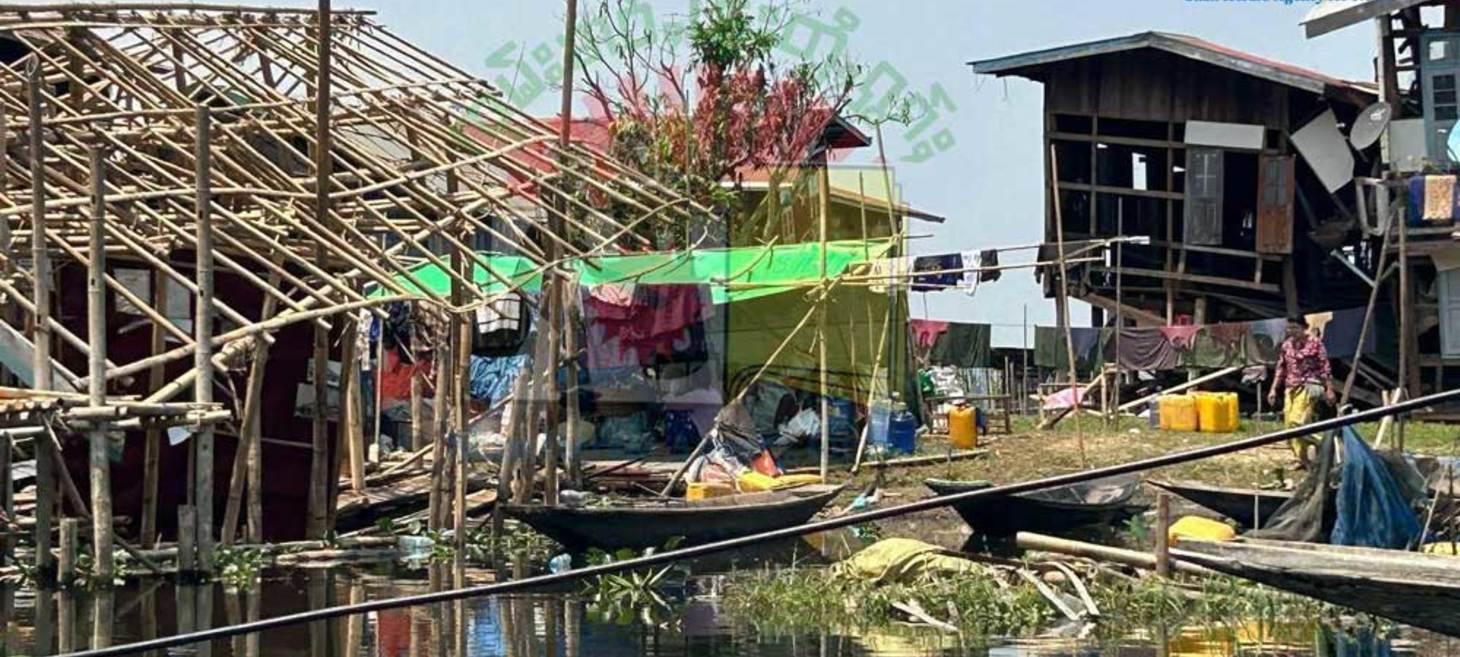
Diarrhea Outbreak Strikes Villages In Inle Region Amid Sanitation Crisis; Medical Aid Urgently Needed
A severe diarrhea outbreak has affected over 60 residents in three villages (North, Middle, and South Lel Thit) near Inle Lake in southern Shan State, with aid workers warning of a growing health crisis. The surge in cases is attributed to rapidly warming temperatures accelerating food spoilage and inadequate sanitation infrastructure, including broken or insufficient latrines, compounded by communities still recovering from a devastating March 28 earthquake. With only one doctor available in one of the affected villages, villagers and aid workers are urgently requesting medical assistance, highlighting the critical need for additional medical personnel, oral rehydration solutions, and essential medicines to contain the outbreak.
Humanitarian

Myanmar refugees in Thailand face health crisis after USAid withdrawal – in pictures
Following the suspension of USAid funding ordered by Donald Trump in January, thousands of Myanmar refugees in Thailand's border camps are facing a health crisis. This withdrawal led the International Rescue Committee (IRC), previously the main healthcare provider, to shut down its clinics inside the refugee camps. Consequently, Thai hospitals like Tha Song Yang and clinics such as Mae Tao are struggling to fill the gap and provide care for the estimated 90,000 displaced people, with some critical cases no longer able to be transferred for treatment.
Military
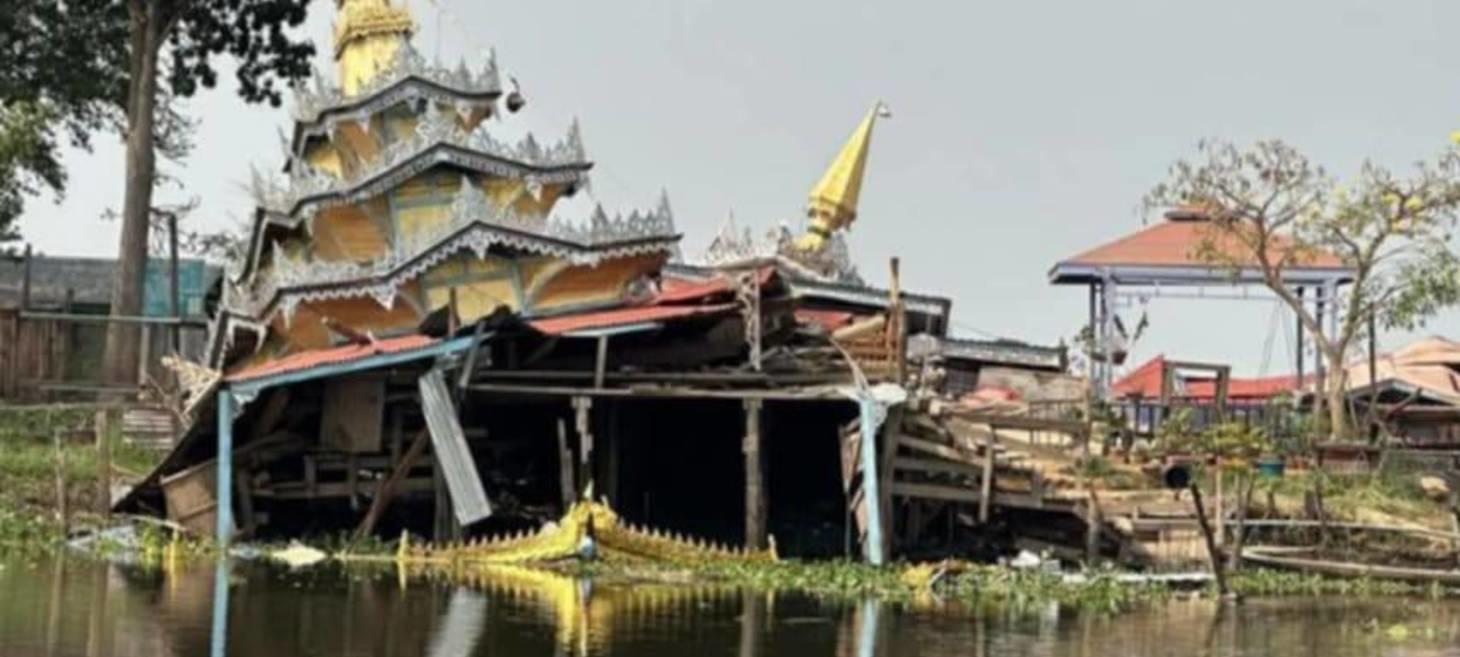
Burma’s earthquake has been exploited by the Burmese military
The earthquake that struck Burma on March 28, 2025, was swiftly exploited by the Burmese military for their benefit, starkly contrasting with the solidarity shown by the people of Burma. Politically, they sought international legitimacy by meeting with regional leaders and framing limited access for select international teams and a broken ceasefire as diplomatic successes, while avoiding criticism over ongoing human rights violations due to the humanitarian need. Economically, the military received significant corporate and regional donations through controlled channels, risking diversion, and are already positioned to profit from reconstruction via their business empire, including companies supplying cement and steel.
Natural Disaster
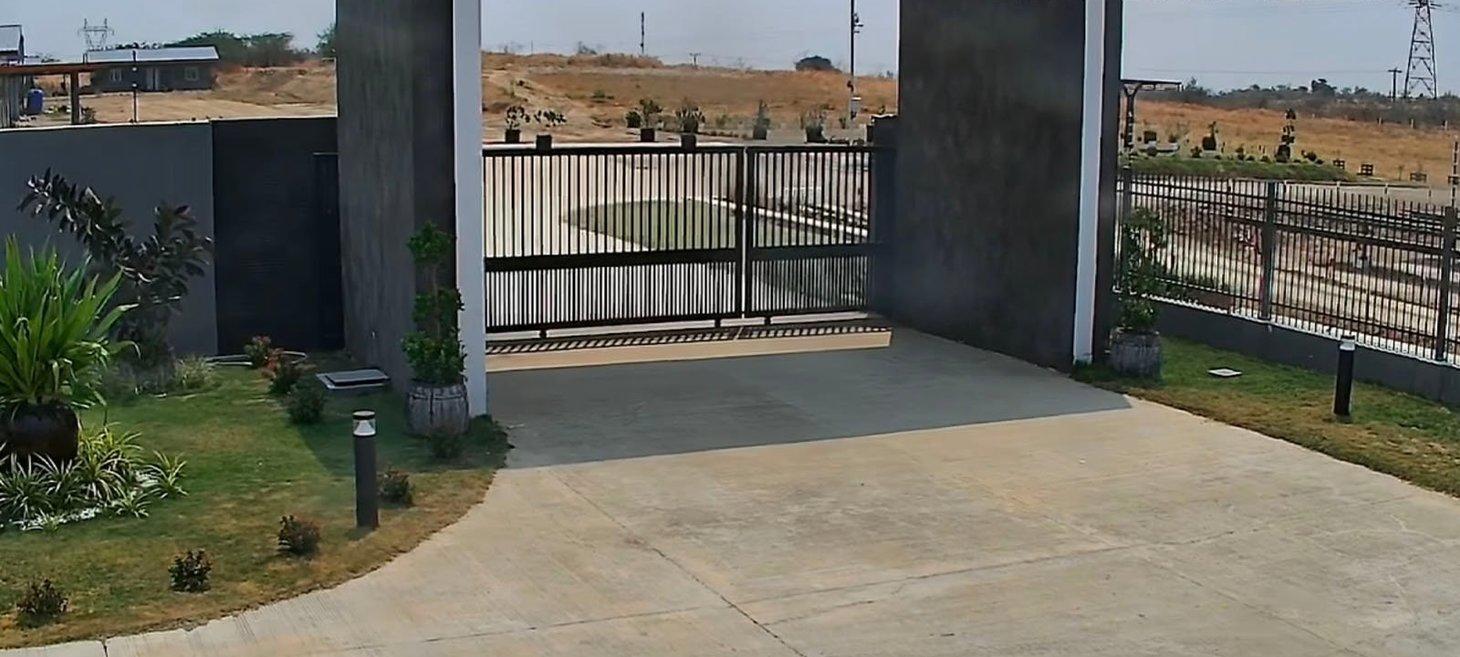
First-Ever Footage Shows Unbelievable Ground Shift from 7.9 Earthquake in Myanmar
Newly surfaced security camera footage captured the first-ever view of the Earth’s surface shifting along a major fault line during a powerful 7.9 magnitude earthquake in Myanmar on March 28, 2025. The video clearly shows a sudden, horizontal ground movement along the Sagaing Fault, characteristic of a strike-slip fault. This significant earthquake caused ground displacement up to 20 feet in some areas and had a severe human toll, resulting in over 5,000 deaths and 5,000 injuries, primarily near Mandalay.
Politics
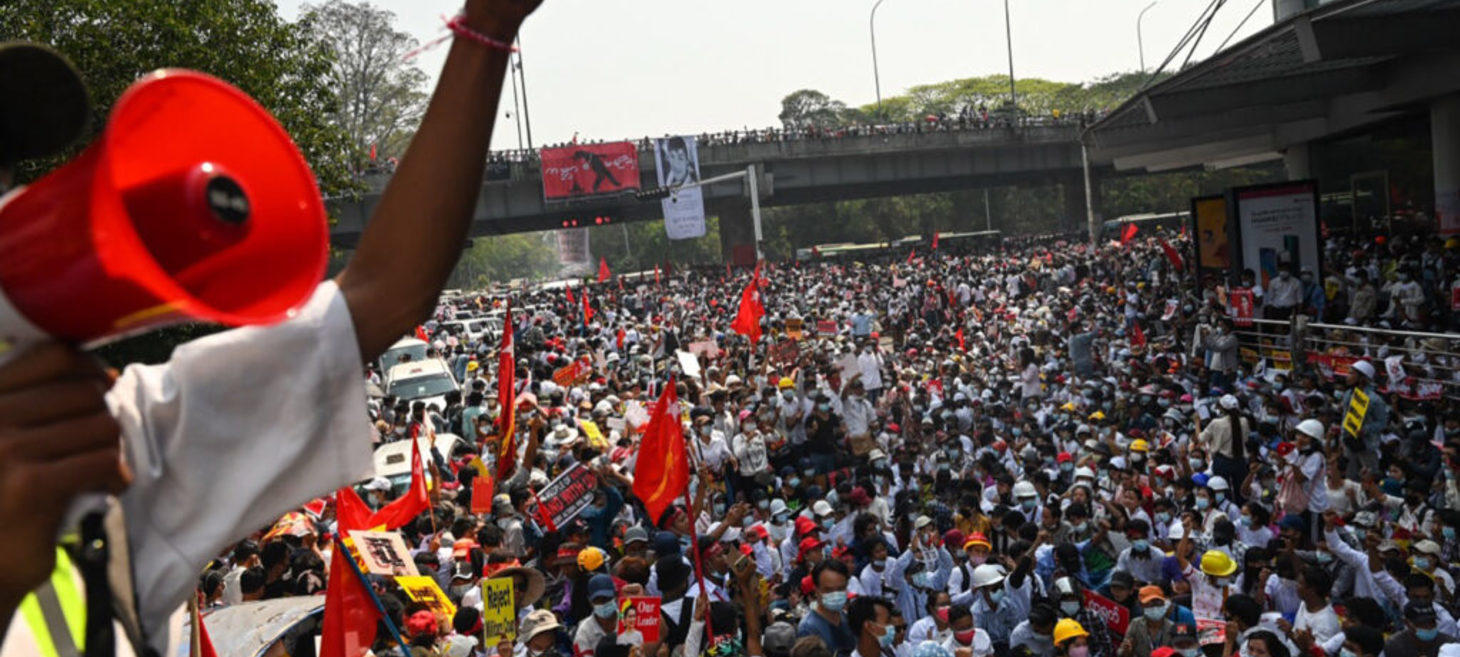
Breaking the 60-Year Political Cycle in Myanmar
Myanmar has been trapped in a "60-Year Political Cycle," marked by periods of British colonialism and military dictatorship, interspersed with brief, unsuccessful attempts at democratic rebuilding. After the 2021 coup cut short another chance for democracy, the country faces the possibility of this pattern continuing, potentially for decades. Currently, an unprecedented and coordinated nationwide resistance movement, the "Spring Revolution," is underway, representing the strongest pushback against authoritarianism since 1962 and a potential opportunity to finally break this historical cycle.